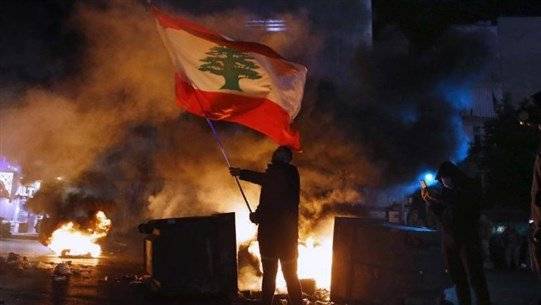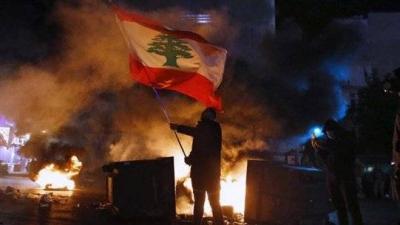Sometimes, one security warning based on field data is enough to raise the likelihood of negative outcomes. At this transitional stage, on the brink of the end of a presidential term and under a caretaker government, warnings abound from security-related parties and those closely monitoring the political and security developments. These warnings are accompanied by external signals about the need to be mindful of the internal situation's danger. The risk lies in the fact that the consultations regarding the presidential and governmental files are taking place under excessive warnings about the situation Lebanon may reach if negotiations on these files fail. So far, it is known that the negotiations are taking place between two extremes: the success of negotiations leading to an agreement on an acceptable presidential figure, or the exit of the government in the last minutes of the term as the best among bad solutions to ease the political tensions rejection of the caretaker government. However, between these two extremes, the sword of security danger looms over the necessity to break the vicious cycle between the presidency and the government and begin preparing suitable conditions for an initial exit from the crisis, so that Lebanon does not become a victim of unprecedented unrest and deterioration, with external advice to heed these warnings before it is too late.
These warnings relate to many unresolved security files as usual tension spots begin to emerge. There are reports of warnings from familiar security hotspots that have recently come under scrutiny, highlighted as was the case recently in Tripoli. The danger lies in the unusual amplification of the situation in the capital of the North and the incidents it is witnessing, whether concerning migrant boats, the return of extremist elements, or even criminal killings. This amplification does not come from nowhere, as there are attempts to politically and security exploit these incidents, especially amid exaggerated and some accurate information about unusual movements that could turn into bargaining chips in security matters. Since any security tension requires a spark, there is a habitual fear that Tripoli could become that spark due to ongoing attempts to exploit it, particularly with the possibility of elements infiltrating from outside the region. The warnings also call for caution regarding other points of tension, such as the renewed exploitation of the Syrian refugee issue, which constitutes a security magnet given the timing of its revival, and operations of transferring refugees to Europe and utilizing their gathering points in Lebanon, alongside an increase in arrests of Syrians and the growing number of incidents involving them, in addition to a fundamental file related to Roumieh Prison and the necessity of keeping watch on what is truly happening there.
While the data concerning security situations has been a long-standing unresolved issue for years, the deteriorating financial situation has once again taken center stage in security concerns. In closed meetings weeks ago, senior bankers expressed fears of a repetition of incidents where depositors storm banks and the inability of security agencies to stop them, especially after the deterioration of conditions for individuals in security institutions responsible for protecting banks. While banks "depend on" leaders of military and security agencies, security and military personnel are showing solidarity with depositors, which multiplies the bankers' anxiety regarding the performance of these elements. Those officials did not expect incidents to occur as quickly as they feared, though, in principle, depositors had delayed significantly in reacting to withdraw their money. Nevertheless, the banking fear, coupled with the security forces' efforts to foresee what might happen, will heighten the factors of tension, at a time when urgent living predicaments are compounded for the Lebanese, alongside the continuing collapse of the lira's value and rising fuel costs with winter approaching.
As critical deadlines approach regarding imminent tasks, the security alert has risen to a higher level, reinforced by a reminder that the accumulation of issues also multiplies the chances of exploitation, from the repercussions of the port explosion judicially to preparations for capital control and the budget, adding justifications to the record of tensions calculated with precision. However, political misjudgment places internal and external security warnings on different paths, and the approach of political forces to its gravity is on another path entirely. Some are even downplaying the severity of any expanding tension, insisting on treating any event as confined to a narrow framework. At best, primary forces act as though it is just part of the external toolkit as a scarecrow to curb internal impulses, rather than recognizing its real danger.




